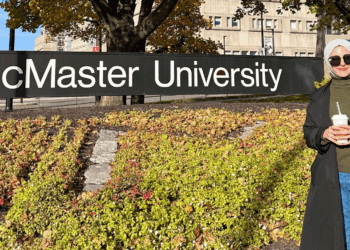The EACR’s Top 10 Cancer Research Publications is a regular summary of the most interesting and impactful recent papers in cancer research. It is curated by the Board of the European Association for Cancer Research (EACR).
The list below appears in no particular order, and the summary information has been provided to us by the authors.
Use the dropdown menu or ‘Previous’ and ‘Next’ buttons to navigate the list.
“This paper investigates the role of 11 microbial strains that populate tumors in mice and their effect on the immune system.” Yardena Samuels, EACR Board Member
T. Tanoue, S. Morita et al., Nature volume 565, pages 600–605 (2019)
The vastly diverse ecosystem of microorganisms colonizing the healthy human gut – known as the microbiota – affects many aspects of host physiology, including the immune system. As such, microbiota composition has been implicated in a wide variety of diseases including cancer, and has been causally linked to patient response to immune checkpoint inhibitor (ICI) therapies. Nevertheless, identifying effector species and their mechanisms of action has proven challenging, thus precluding clinical translation.
Here, we use a gnotobiotic pipeline to rationally select, isolate, and characterize a consortium of 11 bacterial strains from healthy human feces that can potently induce interferon-g (IFNg)-producing CD8 T cells, which are known to promote anti-cancer immunity and the clearance of intracellular pathogens. By inoculating fecal samples from different healthy donors into germ-free (GF) mice, we found that the extent of IFNg+ CD8 T cell induction varied substantially based on basal microbiota composition. We then performed a series of rigorous selection steps including secondary microbiota transplants, treatment with various antibiotics, and correlation analyses to narrow down candidate effector strains, ultimately identifying a group of 11 strains that together robustly induce IFNg+ CD8 T cells. This induction was observed both locally and systemically, and was dependent upon CD103+ dendritic cells and expression of major histocompatibility class Ia molecules. Colonization of both GF and specific pathogen-free mice with the 11 strains enhanced clearance of intracellular pathogen Listeria monocytogenes in a CD8 T cell-dependent manner. Similarly, colonization with the 11 strains augmented spontaneous anti-tumor immunity in mice engrafted with MC38 adenocarcinoma cells, and further enhanced the efficacy of ICIs like anti-PD-1 and anti-CTLA-4 in adenocarcinoma and melanoma models. The 11 strains are rare, low-abundance components of the microbiota that have an outsized effect on host immunity and their genomes do not contain major virulence factors, toxins, or multidrug resistance, making this bacterial cocktail a promising therapeutic candidate to treat a variety of cancers.








